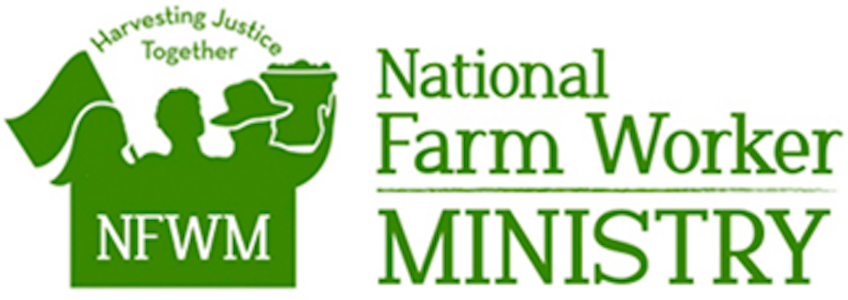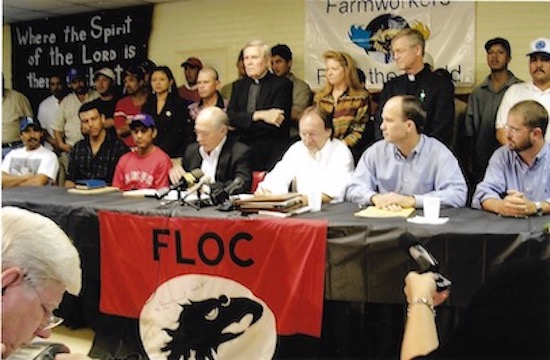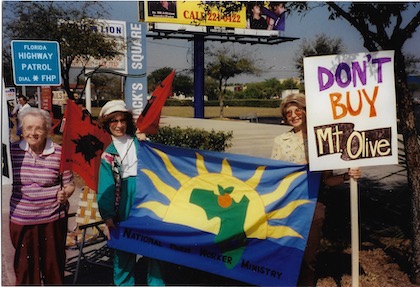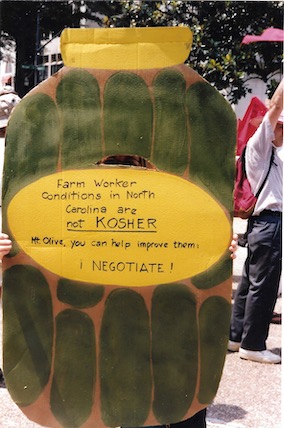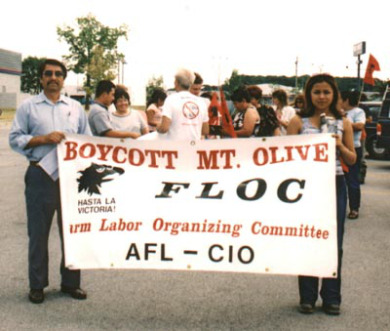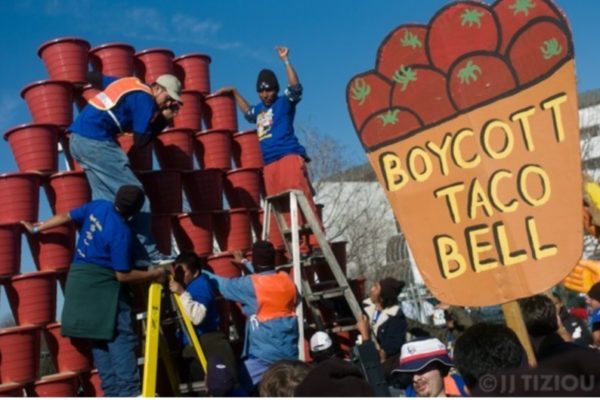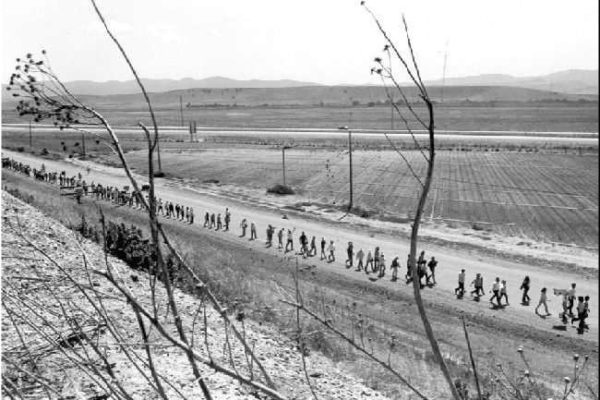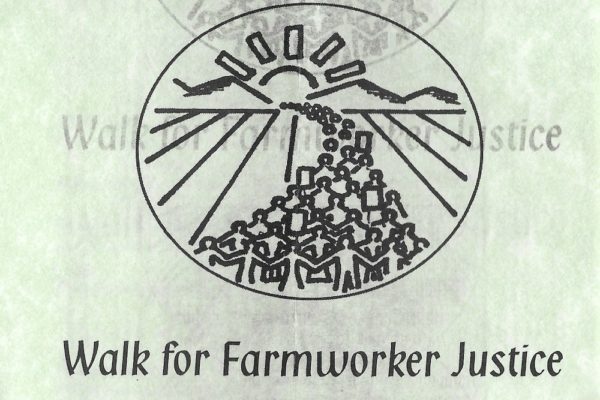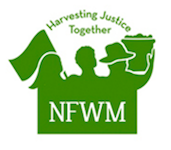“The Mt. Olive Pickle boycott changed the way agriculture is done in North Carolina,” according to Julie Taylor, Executive Director of the National Farm Worker Ministry.
In 1999, the Farm Labor Organizing Committee (FLOC) launched a national boycott of Mt. Olive Pickles, demanding higher wages and safer working conditions for cucumber pickers.
Virginia Nesmith, former Executive Director of NFWM, recalled the role of the faith community: “We worked on getting endorsements for the boycott. The big one was the National Council of Churches. Bill Bryan [President of Mt. Olive Pickles] was a United Methodist so [the UMC] tried to stay out of it, but the United Methodists endorsed the boycott after the NCC joined.” When a grower is also a church member, it can be problematic for that church to endorse a boycott. Virginia continues, “the Council joining freed up the United Methodists to endorse – and then Mt. Olive came to the table.”
“The faith community was helpful in getting endorsements,” reflected Baldemar Valesquez, President of FLOC.
“We also got people to stand out in front of grocery stores to urge people not to buy Mt. Olive, and to send letters to the company,” recalled Virginia. She pointed to Joan Preiss, former NFWM board member, as a key contributor to NFWM’s successful support of the boycott. Joan also worked for NFWM as well as the UFW.
When the workers marched from Mt. Olive to Raleigh, the NFWM organized places for people to sleep and churches to feed people along the way, recalled Virginia. The NFWM ultimately opened an office at the [local] Unitarian Church and hired Lori Khamala and Alex Jones to lead the work.
In September 2004, five years after the boycott began, FLOC called off the boycott after 8,000 farm workers signed a deal for union representation and Mt. Olive agreed to a 10 percent increase over 3 years to be paid to the growers who would pay the same amount to the workers, according to the Washington Post (1). It was the first 3-way deal in North Carolina’s history.
After the agreement was signed, the National Council of Churches gave Bill Bryan and Baldmar Valesquez an award for coming together and negotiating a contract. Bryan said that he might have made improvements to housing but he never would have done as much as he did without the boycott, remembered Virginia. “He said ‘he didn’t like it, but he wouldn’t have done what he did without it.’”
Sylvia Campbell, former NFWM board president, remembers that when she got to announce the agreement at a board meeting, the board was excited to be able to eat sweet pickles again.
(1): Thompson, Estes. Pickle Boycott Ends as Farmworkers Join Union – The Washington …https://www.washingtonpost.com › business › 2004/09/17
